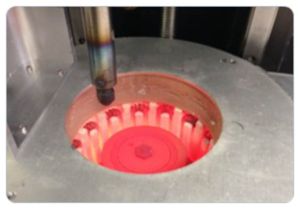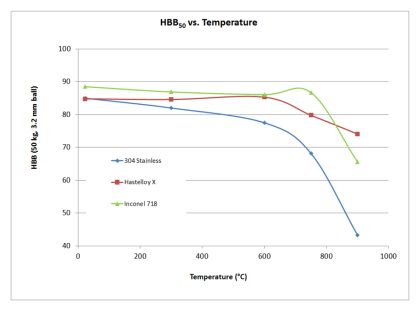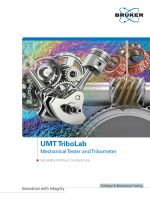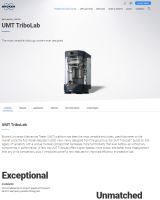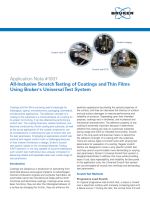Bruker UMT TriboLab
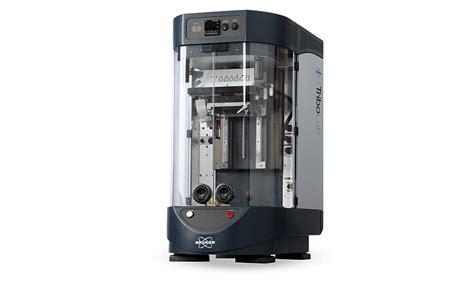

Bruker's Universal Mechanical Tester (UMT) platform has been the most versatile and widely used tribometer on the market since the first model debuted in 2000. Now, newly designed from the ground up, the UMT TriboLab builds on that legacy of versatility with a unique modular concept that harnesses more functionality than ever before - all without any compromise in performance.
Features:
- Exceptional modularity
- Broadest capabilities
- Unmatched ease of use
- Selection of versatile modular drives
- Choice of high-load, high-performance sensors
- Wide range of temperature and environment accessories
In fact, the UMT TriboLab offers higher speeds, more torque, and better force measurement than any of its predecessors or competitors, plus it introduces powerful new features for improved efficiency and ease-of-use. TriboLab can perform practically every common tribological test on nano and micro scales. Due to its range of testing abilities and multiple possible configurations, it is used extensively across a wide variety of industries, including biomedical, microelectronics, paper, and coatings, and throughout common industrial processes in petroleum, aerospace, automobile, engine, bearing, and fastener manufacturing.
For further information please contact us or download the datasheet.
UMT TriboLab brochure Read more on Bruker's website
#1007 All inclusive scratch testing of coatings
and thin films using Bruker's Universal Test System
Precision Tribology Provides Quantitative Assessment of Wear in New Generation Coatings
Bruker Corporation have unveiled the next generation of their Universal Mechanical Testers, the UMT-TriboLab, a fully reconfigurable tribology platform providing capabilities including hardness and scratch testing, linear and rotary reciprocating wear and tensile testing under a broad range of environmental conditions.
By combining a probe in accordance to ASTM G171-03, and an acoustic emission sensor, the Bruker UMT platform was used with its automated capabilities to measure multiple parameters in different materials including scratch hardness, scratch adhesion, friction coefficient and reciprocated wear across bulk glass, LCD film, DLC film and carbon nanocomposite films.
The reconfigurable nature of the UMT allow this mechanical tester to be utlised in a wide number of ASTM compliant test configurations to cover many different material applications in an RnD environment. When utilised with the quantitative capability of the Bruker 3D optical microscopes the test and inspection capabilities provide a highly quantitative assessment of surface coatings.
Download the pdf to learn more about the thin film test capabilities of the Bruker UMT.
Hot Hardness Testing Provides Insight into Material Failure in Extreme Environments
Understanding the complex material behaviour and strength changes as a function of increasing material temperatures is critically important across a range of industries including aerospace, automotive, processing and material fabrication.
Traditional strength tests such as tensile testing becomes challenging to implement under extreme temperatures. Hot hardness testing can be implmented in a much simpler test configuration and provides an assessment of material property changes as a function of increased operating temperature.
The Bruker UMT Tribolab can be configured with elevated temperature furnances up to 1000°C and with inbuilt software measurement automation, the changing material hardness as a function of tmperature can be easily and quantitatively assessed. With a variety of probes and force sensors the Bruker UMT can be applied to assess the temperature dependence in platics, metals and super-alloys.
To learn how hot hardness testing or elevated temperature tribology could be implemented in your RnD lab contact us today.
